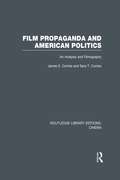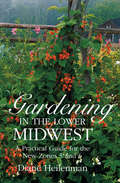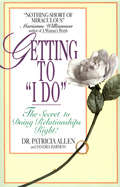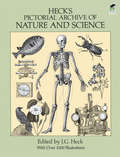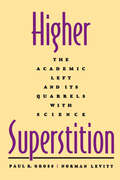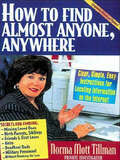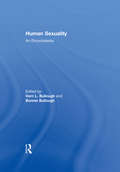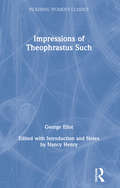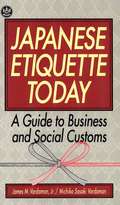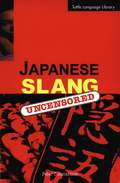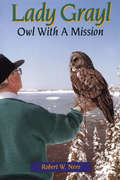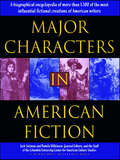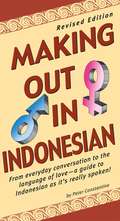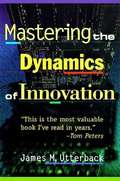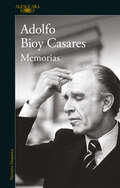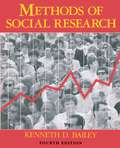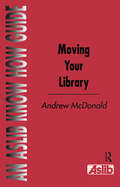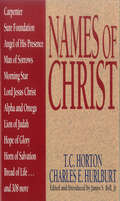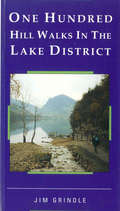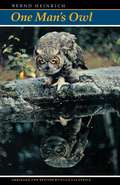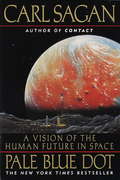- Table View
- List View
Film Propaganda and American Politics: An Analysis and Filmography (Routledge Library Editions: Cinema #Vol. 4)
by James Combs Sara T. CombsOriginally published in 1994, this important book traces the rise of film propaganda in the 20th Century, discussing specifically how film can be used to manipulate public perception and opinions. Two distinct areas are covered: war propaganda, including feature and documentary films regarding warfare; and civilian propaganda, including films that address a variety of political subjects. Although the focus is American film and American politics, this book offers insights for all those interested in the affect of film on the minds of citizens of any country or state.
Gardening in the Lower Midwest: A Practical Guide for the New Zones 5 and 6 (Encounters: Explorations in Folklore and Ethnomusicology)
by Diane Heilenman&“A common-sense handbook for gardeners&” who live in the plant hardiness zones of the Midwest with extreme temperature swings (HortScience). Garden columnist Diane Heilenman helps novice and experienced gardeners cope in the difficult and trying climate of the areas she labels Zombie Zones, where wild temperature swings are normal—&“specifically, upper Kentucky; all of Ohio, Indiana, and Illinois; lower Iowa; all of Missouri; and the lower parts of Wisconsin and Michigan&” (Library Journal). She shows how to create gardens appropriate for the region and how to select flowers, plants, trees, and shrubs that will be happy—and in turn make us happy. A gifted thinker who grapples with what it means to garden in our time, Heilenman has produced a book that &“will help slacken the stress level that gardening was never meant to bring&” (HortScience). &“[Heilenman] gets to the heart, the soul and the humor shared by all in the gardening world . . . both a practical reference and an inspiration.&”—The Herald-Times (Bloomington, IN) &“Presents basic gardening techniques and personal plant preferences in a breezy writing style.&”—Library Journal
Getting To 'I Do'
by Sandra Harmon Pat AllenDr. Patricia Allen's jam-packed seminars in Los Angeles have resulted in over two thousand marriages. Now you too can take advantage of this proven step-by-step program.Here's what you'll learn: How to attract the right man When you should make the first move...and when you should not Why equality in a relationship may not be what you're looking for Why sex before commitment is a bad deal How to have sensational sex What makes a man run away from a relationship How to know when you're giving too much How to get what you want without asking What makes a man want to commit How to be engaged to the right man within a year!
Halloween and Other Festivals of Death and Life
by Jack SantinoCollection of scholarly articles on Halloween's historical and folkloric origins, new and traditional customs and practices, and media images.
Heck's Pictorial Archive of Nature and Science: With Over 5,500 Illustrations (Dover Pictorial Archive)
by J. G. HeckBased on J. G. Heck's Bilder Atlas zum Convenations Lexicon, published in German in the nineteenth century, the Iconographic Encyclopaedia of Science, Literature, and Art was a monumental six-volume compilation of illustrations and information, covering an enormous range of subjects, from architecture to zoology. Among its most remarkable features were the thousands of superb steel engravings, comprising one of the most extensive pictorial archives ever published in a single work.The present book, one of three separate and independent volumes based on the rare original American edition of 1851, is devoted to nature and science. Over 170 beautifully reproduced plates contain thousands of illustrations depicting an extraordinary array of subjects: mathematical and geometrical problems; surveying instruments, astronomical maps, and instruments; planetary systems according to Ptolemy, the Egyptians, Copernicus, and others; positions of the planets; botanical illutrations of scores of plants — including seed pods, fruits, and other parts; physical and meteorological illustration demonstrating many laws and principles; numerous types of physical and chemical apparatus; animals, minerals, fossils, geological formations; human anatomy; and many other images. A descriptive table of contents is keyed to numbered illustrations on each plate.Artists, illustrators, and anyone in need of precisely rendered, royalty-free science or nature illustrations will welcome this practically inexhaustible wealth of immediately usable art.
Higher Superstition: The Academic Left and Its Quarrels with Science
by Paul R. Gross Norman LevittThe widely acclaimed response to the postmodernists attacks on science, with a new afterword.With the emergence of "cultural studies" and the blurring of once-clear academic boundaries, scholars are turning to subjects far outside their traditional disciplines and areas of expertise. In Higher Superstition scientists Paul Gross and Norman Levitt raise serious questions about the growing criticism of science by humanists and social scientists on the "academic left." This edition of Higher Superstition includes a new afterword by the authors.
How to Find Almost Anyone, Anywhere
by Norma Mott TillmanLearn a PI’s secrets for finding missing loved ones, birth parents, first loves, heirs, military personnel, and others—without breaking the law.A private investigator provides the information by which tens of millions of Americans separated by adoption will be able to find a lost relative. Here also are the resources for those needing more information about someone. Whether you are looking for an old friend, a dead-beat dad, a debtor, father/mother or sibling, this is the book that may change your life.
How to Get Your Dog to Do What You Want: A Loving Approach to Unleashing Your Dog's Astonishing Potential
by Warren Eckstein Andrea EcksteinWhy settle for anything less than a best friend? Every dog wants to perform -- and deservedly gain your love and affection. With Warren Eckstein's expert guidance, you can forget about frustration and disobedience, and enjoy years with a loyal, alert, and very happy dog! Here are wonderful insights, witty observations, and step-by-step advice for:* Communicating with your dog* Hassle-free housebreaking*The training ABCs -- from sitting to heeling and beyond* Diet, grooming, exercise and dentistry tips* Coping with canine old age* And much, much more!"Too bad Warren isn't a marriage counselor! If only he could do for husbands what he does for dogs!" Kathie Lee GiffordFrom the Trade Paperback edition.
Human Sexuality: An Encyclopedia (New Concepts In Human Sexuality Ser.)
by Vern L. Bullough Bonnie BulloughFirst Published in 1994. The purpose of an encyclopedia is to gather in one place information that otherwise would be difficult to find. Bring together a collection of articles that are authoritative and reflect a variety of viewpoints. The contributors come from a wide range of disciplines— from nursing to medicine, from biology to history— and include sociologists, psychologists, anthropologists, political scientists, literary specialists, academics and non-academics, clinicians and teachers, researchers and generalists.
Impressions of Theophrastus Such: Essays And Leaves From A Note-book (classic Reprint) (Pickering Women's Classics)
by George EliotGeorge Eliot (1819-80) is one of the most widely-read of the 19th-century novelists and story-writers. "Impressions of Theophrastus Such" appeared in 1879, Eliot's last completed work. It consists of 18 short essays narrated by a middle-aged bachelor, Theophrastus.
Japanese Etiquette Today
by Michiko Sasaki Vardaman James M. VardamanJapan today "looks" more and more Western, principles governing social and business relations become harder to see. Most foreigners know that Japanese etiquette differs from that of other countries, but few people know the extent of the differences. It is this diversity that first attracted the authors of Japanese Etiquette Today, a book written to make working and living in Japan enjoyable and rewarding experiences.The authors look at a variety of formal and informal occasions governed by subtle rules-visiting a Japanese office and h ome, giving and returning gifts, attending weddings and funerals, and much more. The result is an informal overview of Japanese society and a manual of practical advice on getting a long in that society. Complete with essential vocabulary and phrases, this handy guidebook explains what to do and perhaps more important what not to do, what to say, what to wear, indeed, whatever you need to observe the complex rules of modern Japanese etiquette.
Japanese Slang
by Peter ConstantineReveals, in vivid detail, the richness of Japanese slang in all its amusing, bizarre and shocking forms.
Lady Grayl: Owl With a Mission
by Robert W. Nero"This is the story of a man and his owl. But what a man and what an owl! The owl is one of our planet’s most beautiful and elusive beings, an enchanting spook, a feathered spirit from some ancient world. "The man is Robert Nero, his name synonymous with that of the Great Gray Owl, his love affair with the species spanning twenty-five years. For me, a non-professional adrift in a sea of biologists, it is heartening to find in Dr. Nero not just the able scientific mind but also a sense of wonder, undiminished by the years. Perhaps it is the mortality of all living things that makes them exquisite to him, for he writes of their brief beauty in poetry and prose. His words remind us of joys we once knew, of worlds to which we have grown blind. "What a privilege it is to share a time on Earth with a man like this, and to call him friend." - Katherine McKeever, The Owl Foundation, Vineland, 1994 "Bob Nero, one of Canada’s finest nature writers, has done it again! His fifth book, about Lady Grayl, is a personal account, something close to a love story. For nine years, since the rescue of a starving runt owlet from a wild brood, he has taken his beautiful owl, Lady Grayl, to countless schools and public meetings to preach the gospel of conservation. She and Bob are well-known throughout Manitoba, and beyond. "Bob’s careful observations of this imprinted owl supplement his 25 years of research into Great Gray Owls in the wild. Six sensitive poems and numerous photographs depict the owl in many moods and settings. This book will rank along with Bernd Heinrich’s acclaimed One Man’s Owl, which dealt with an imprinted Great Horned Owl, and will be of special interest to all who have been fortunate enough to see Lady Grayl." - C. Stuart Houston, University of Saskatchewan
Major Characters in American Fiction: A Biographical Encyclopedia Of More Than 1500 Of The Most Influential Fictional Creations Of American Writers
by Jack Salzman Pamela WilkinsonMajor Characters in American Fiction is the perfect companion for everyone who loves literature--students, book-group members, and serious readers at every level. Developed at Columbia University's Center for American Culture Studies, Major Characters in American Fiction offers in-depth essays on the "lives" of more than 1,500 characters, figures as varied in ethnicity, class, sexual orientation, age, and experience as we are. Inhabiting fictional works written from 1790 to 1991, the characters are presented in biographical essays that tell each one's life story. They are drawn from novels and short stories that represent ever era, genre, and style of American fiction writing--Natty Bumppo of The Leatherstocking Tales, Celie of The Color Purple, and everyone in between.
Making Out in Indonesian: Revised Edition (Indonesian Phrasebook)
by Peter Constantine Soe Tjen MarchingMaking Out in Indonesian is a fun, accessible and thorough guide to Indonesian as it's really spoken. It has been updated and expanded to be even more helpful as a guide to modern colloquial Indonesian for use in everyday informal interactions-giving access to the sort of catchy expressions that aren't covered in traditional language materials.<P><P>It includes an introduction to the Indonesian language as well as a pronunciation guide, topical notes throughout on key points of language and culture, and chapters based on typical real-life encounters with speakers of Indonesian, including: o Making acquaintances o Discussing likes and dislikes o Sharing a meal o Going out on the town o Developing a romantic relationship or quarreling, even through to having sex and getting married or splitting up!
Mastering the Dynamics of Innovation
by James M. UtterbackFrom the back cover: "Utterback shows how innovation enters an industry, how mainstream firms typically respond...[he captures the rich history of innovation by inventors and entrepreneurs..."
Memorias
by Adolfo Bioy CasaresMemorias es un libro autobiográfico que publica Adolfo Bioy Casares en 1994. La de Bioy Casares es una obra extraordinaria y vigente que, además, ofrece una especie de enigma: esa etapa entre 1929 y 1940 en la que publicó varios libros de los que él mismo prefirió no acordarse. En Memorias, sin embargo, ofrece algunas precisiones al respecto. En estas páginas habla también de sus primeros perros y caballos, de sus disidencias con el grupo Sur, de su acceso al género fantástico a partir de un espejo veneciano en el cuarto de vestir materno, de su compleja relación con Silvina Ocampo, de ese folleto sobre el yogur y la leche cuajada que significó el debut de una de las sociedades literarias más destacadas de todos los tiempos con Jorge Luis Borges, de la estancia de los Bioy en Pardo y de un inolvidable hotel que lo motivó a escribir ese particular cóctel que él define con toda naturalidad y terminó por convertirse en uno de los estilos más reconocibles de la literatura argentina: «historias donde conviven animales feroces, que sugieren épocas bárbaras y frívolos turistas de nuestro tiempo».
Methods of Social Research, 4th Edition
by Kenneth BaileyAn introduction for undergraduates to every stage of sociological research, showing how to deal effectively with typical problems they might encounter. The book is fully updated to include examples from the LA riots and the 1992 presidential elections.
Moving Your Library
by Andrew McDonaldExamines the essential elements of planning a move, and offers practical guidance to ensure minimum disruption to service.Topics covered include: planning; resources, equipment and furniture, staff, security, safety and insurance. Examines the opportunities for service review and development.
Names Of Christ (Names of... Series)
by Charles E. Hurlburt T. C. HortonLily of the Valley. Bright and Morning Star. Rose of Sharon. Author of the Faith. The Lord Jehovah. Friend of Sinners. Son of Man. King of Kings.What does Christ mean to you? When you consider His person, His work, and His words, are you struck by the depth and complexity, the richness and incalculable beauty of who He is? This classic study, revised for today's reader, examines the many names of Christ, more than 300 in all, each revealing an intimate portrait of the Savior. In this new edition, devotional prayers accompany each name, helping you meditate on the character and person of Jesus Christ. This book is an invaluable resource to any library and is sure to enrich your personal devotional time. Names of Christ follows Names of God in a classic trilogy designed to help contemporary Christians better understand the glory, majesty, and power of the triune God.
Names Of Christ (Names of... Series)
by Charles E. Hurlburt T. C. HortonLily of the Valley. Bright and Morning Star. Rose of Sharon. Author of the Faith. The Lord Jehovah. Friend of Sinners. Son of Man. King of Kings.What does Christ mean to you? When you consider His person, His work, and His words, are you struck by the depth and complexity, the richness and incalculable beauty of who He is? This classic study, revised for today's reader, examines the many names of Christ, more than 300 in all, each revealing an intimate portrait of the Savior. In this new edition, devotional prayers accompany each name, helping you meditate on the character and person of Jesus Christ. This book is an invaluable resource to any library and is sure to enrich your personal devotional time. Names of Christ follows Names of God in a classic trilogy designed to help contemporary Christians better understand the glory, majesty, and power of the triune God.
One Hundred Hill Walks in the Lake District
by Jim GrindleThis volume is a superb guide to the best walks in the Lake District, one of Britain's most popular areas for walking and climbing. Jim Grindle has brought together not only the most outstanding walks in Lakeland but also routes in tranquil places where you can escape from the crowds. Each of the one hundred walks features a specially drawn map, notes on features of historical and geographical interest, a detailed route description, full directions from the Lake District, hints on how to shorten walks and information on distances and OS grid references for starting points.
One Man's Owl: Abridged Edition
by Bernd HeinrichThis engaging chronicle of how the author and the great horned owl "Bubo" came to know one another over three summers spent in the Maine woods--and of how Bubo eventually grew into an independent hunter--is now available in an edition that has been abridged and revised so as to be more accessible to the general reader.
Pale Blue Dot: A Vision of the Human Future in Space
by Carl Sagan Ann DruyanIn Cosmos, the late astronomer Carl Sagan cast his gaze over the magnificent mystery of the Universe and made it accessible to millions of people around the world. Now in this stunning sequel, Carl Sagan completes his revolutionary journey through space and time.<P> Future generations will look back on our epoch as the time when the human race finally broke into a radically new frontier--space. In Pale Blue Dot Sagan traces the spellbinding history of our launch into the cosmos and assesses the future that looms before us as we move out into our own solar system and on to distant galaxies beyond. The exploration and eventual settlement of other worlds is neither a fantasy nor luxury, insists Sagan, but rather a necessary condition for the survival of the human race.
